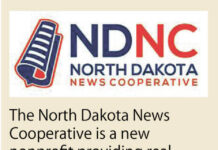Are raw milk products going to become available soon at a store near you? Well maybe in the future. Currently, raw milk can only be purchased through cow shares or directly from the farmer in North Dakota.
House Bill 1131, which would allow raw milk products to be directly sold to the consumer, just passed the North Dakota House of Representatives and is on its way for senate consideration. That would be raw butter, kefir, and other products.
It’s been touted as being better than pasteurized milk. Health and Human Services Secretary Robert F. Kennedy Jr. has said he “only [drinks] raw milk.” Health influencers on social media say it’s a superfood.
The Centers for Disease Control and Prevention have advised against the consumption of raw milk. The CDC, on its website states, “pasteurization is crucial for milk safety, killing harmful germs that can cause illness” and that “consuming raw milk can lead to serious health risks, especially for certain vulnerable populations.”
One of the raw milk farms that delivers to Devils Lake and other parts of North Dakota is Bartlett Farms in Bottineau. Peter Bartlett started the farm in 2004 and started selling raw milk through cow shares in 2009.
Bartlett said that the process for raw milk starts with the “cows [getting] milked twice a day no matter the weather.” The milk is then “transferred to sanitary stainless milking machines and filtered in a gauze filter and chilled at 36 degrees.” Barlett said his farm has served about 200 families with raw milk for over 15 years, and there have been no confirmed deaths from raw milk consumption.
Bartlett has said some of the benefits of raw milk include reducing inflammation, can help with leaky gut, and is a nutrient-dense food. He cites noted dentist and researcher Weston A. Price. Price has some North Dakota roots as he practiced dentistry in Grand Forks. Price studied the effects of diet on tooth decay. He looked at the diets of Native Americans, Polynesians, Aborigines, and others. He published his findings in “Nutrition and Physical Degeneration,” which concluded that diets high in vitamin K, B, C, high in animal fats, and raw dairy products were the reason they had low rates of crooked teeth, poor skeletal formation, and very good bone structure.
Bartlett said interest has doubled in raw milk post-pandemic. “The local food market has boomed after COVID,” he said. He pointed to consumers’ loss in trust with the CDC and the Food and Drug Administration.
Not everyone is on the raw milk train. Rep. David Monson from the 19th district, which includes Langdon, voted “no” on H.B. 1131. He is also a farmer.
“I am an old science teacher. Louis Pasteur was one of my heroes growing up,” he said. Monson added that the French scientist helped eradicate “diseases that can be spread in raw milk and other bacteria and other viruses.”
Some of the diseases that can be transmitted through raw milk are diphtheria, listeria, and avian flu.
“I don’t think there is any benefit to it,” Monson said. “I spent many many hours looking through microscopes… it makes me really cringe when I think about what is out there and what diseases we haven’t seen for years.” Monson added that when the possibility of raw milk being sold at farmer’s markets came up, he was shown milk samples from the North Dakota Department of Agriculture. He said the department told him “if you saw what some of these milk samples have with bacteria it would make you shudder.”






